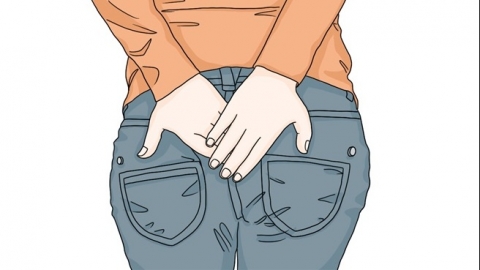How to treat hemorrhoids
Generally, treatment methods for hemorrhoids mainly include general management, physical therapy, medication, traditional Chinese medicine (TCM), and surgical treatment. Specific details are as follows:
1. General Management
Patients should maintain cleanliness and dryness of the anal area. After each bowel movement, wash the area with warm water to prevent irritation from residual feces. Daily adjustments in diet are recommended, including increased intake of foods rich in dietary fiber such as vegetables, fruits, and whole grains, along with adequate hydration, to prevent constipation from worsening hemorrhoids. Avoid prolonged sitting or standing; engage in light physical activities like walking to promote blood circulation around the anus and relieve discomfort caused by hemorrhoids.

2. Physical Therapy
Physical therapy can improve hemorrhoid symptoms through gentle approaches. Common methods include warm sitz baths and infrared irradiation. Warm sitz baths, performed 1–2 times daily for 15–20 minutes each time, help relax the anal muscles and reduce local inflammation and pain. Infrared irradiation promotes local blood circulation in the anal region, accelerates mucosal healing, and helps alleviate swelling and pain associated with hemorrhoids.
3. Medication
Medication is a commonly used approach for treating hemorrhoids. Patients may use medications under medical guidance, such as Ma Ying Long Musk Hemorrhoid Ointment, Gangtai Suppositories, Compound Alginates Cream, Diosmin Tablets, and Micronized Purified Flavonoid Fraction Tablets, to improve symptoms.
4. Traditional Chinese Medicine (TCM)
According to TCM, hemorrhoids are related to factors such as downward infiltration of damp-heat, qi stagnation and blood stasis, and qi deficiency with visceral prolapse. Treatment often involves herbal medicines that clear heat and remove dampness, promote blood circulation and resolve stasis, or strengthen qi and lift sinking organs, such as Huaijiao Pills and Dizhu Huaijiao Pills. Acupuncture may also be used to regulate the flow of qi and blood by stimulating specific acupoints, which can help relieve symptoms such as pain and bleeding caused by hemorrhoids.
5. Surgical Treatment
For patients with severe conditions or poor response to conservative treatments, surgical intervention may be considered. Common procedures include hemorrhoidectomy, stapled hemorrhoidopexy, and excision of thrombosed external hemorrhoids. These surgeries aim to remove hemorrhoidal tissue or improve venous return in the hemorrhoidal plexus to achieve therapeutic goals.
In addition, during treatment, patients should follow medical advice strictly, undergo regular follow-up examinations, and develop healthy bowel habits, avoiding excessive straining during defecation. If any abnormalities occur during treatment—such as increased rectal bleeding, worsening pain, or prolapsed hemorrhoids that cannot be reduced—medical attention should be sought promptly to adjust the treatment plan.





